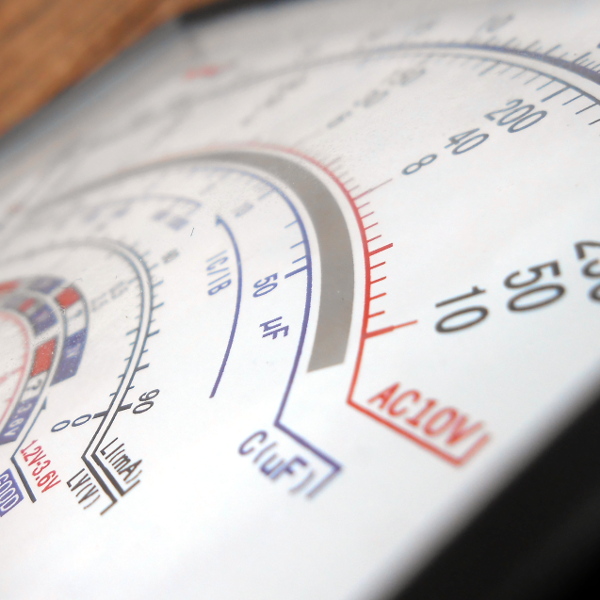[youtube=http://www.youtube.com/watch?v=v2vN_mxW4Bc]
As the summer heats up an air conditioning system is a necessity in many climates. [Grayson’s] system suffered some damage over the winter that caused it to vent its refrigerant, avoiding an explosive situation. Before he can chill out inside he’ll need to recharge it and he’s chosen to use propane in his cooling system. According to our friend Google this is not his original idea, but has been done many times before. [Grayson] makes the point that although propane is flammable it’s not necessarily any more dangerous in a fire than Chlorodiflouromethane, or R22, which is the nasty little gas that fled his system for its new home in the upper atmosphere.
The video above includes a brief explanation of recharging the system and the tools needed. We’d need to mill this over for quite a while before working up the gumption to give it a try. For now we’ll stick to [Grayson’s] more pedestrian hacks like making some servo motors sing or easing our yard work woes.
















please make the video https://www.youtube.com/watch?v=v2vN_mxW4Bc public or post the login and password
I work in research as a prototype engineer. I am certified to work on refrigeration systems. I work on -80C dual stage freezers and such. I am an experienced technician and engineer with over 40 years in practice.
Much of what have learned has been from putting things together and trying something new. I get smarter with each attempt. I have worked with R-290 and R-600 in commercial equipment which was engineered by someone else. I am not afraid to work with flammable gas with proper ventilation when filling and venting. These gasses are thermodynamically beautiful.
Considering the environmental impact of the CFCs and similar compounds, propane and ethane should be considered worldwide as a replacement in refrigeration systems. Most of the countries that allow them have had very few problems with explosions or fires. Most explosions are from cooking stoves and gas grills.
I plan to try a system of my own design sometime when I have time. Careful consideration of the throttling valve or expansion valve is important to achieve the proper evaporator pressure. Compressor choice and flow rate for the cooling load of the system must be calculated.
Proper service procedures should be used. I study a lot and plan before such an attempt. There is the greatest degree of safety in education. People should have the right to endanger themselves if they so choose. Skydivers, speeding drivers, drunk drivers and powerboat operators: all endanger the people on the ground, on the roads and around the water. We as those that would attempt to make the world better mostly suffer the consequences of our exploration, it is a risk we are willing to take to learn. We should however minimalize the possibility of collateral danger to those around us.
Your speech patterns seem a bit formal Amos, I gather from that and word use that you don’t get a lot of “real world experience,” which is fine; but it’s kind of an important thing to have if you plan to prototype something like this. You need to serve as technician of air conditioners and commercial refrigeration systems for at least 5 years instead of the cryo units you are used too, it would help to give you a grounding into what kind of short cuts others take so you know how to recognize them, and hopefully, avoid them. Granted cryogenics are an order of magnitude more complex than your average air conditioner but not everything from that field will translate over to air conditioning; and when you start using flammables as refrigerants, mistakes can be far more costly and my attribute a sudden halt to your research. Be safe.
,
Oh, and when you start your design, start with your cooling needs, a 400cfm per 12,000btu is required. This will help size the unit.
I have worked extensively on domestic systems. I have done some work on adsorption refrigeration systems used in campers, which is somewhat more dangerous than what is proposed with the propane in this discussion. Adsorption refrigerators use high pressure hydrogen and ammonia (and water). The hydrogen is very flammable (more so than propane). I have had accidents with gas stoves and some small appliances where a propane build up cause a flash in the presence of an ignition source (I have lost the hair on my arms). Some careful thought must go into work done especially in close quarters were a buildup can occur (needing only an ignition source). Keep in mind that a container of hairspray has more propane as a propellant than a home refrigerator would need. I have seen woman with a hairspray can in one hand and a hairdryer in the other (that takes guts, I would cower at such a risk)! The U.S. does not support flammable refrigerants for domestic use (it does for commercial systems, I have worked on some). Propane is a good solution and should be implemented as it is environmentally friendly and more efficient. There are publications by Embraco, Teccumseh and others which address safety in the servicing of R290 systems. I am an advocate of the use of R290 and R-600a. By all means: safety first. I consider the danger of working with these systems small compared to driving in the cities.
I’m glad you have a good level of experience in the field. My feelings on propane as a refrigerant is mixed due to the common misconception that standard fuel grade propane could be used, your proper use of nomenclature tells me you hold the same opinion as I do on this: Fuel grade propane should not be used as a refrigerant.
The ones reading these posts are either of the mind of “Oh No’s its going to explode!” or the “I think I will recharge my air conditioner from my grill tank! That should work! It’s the last ones that scare me more than anything.
aztraph, It strikes me odd that you start out denigrating Amos’ experience level, so it is quite clear that your progressive tendencies to tell others how to live their lives overwhelms your ability of reading comprehension, to read thoroughly, and/ or to critically think. It wasn’t until Amos reiterated his experience in his reply to you that you acknowledged it, but then obviously brushed aside the point of his original post, which was summarized in the last paragraph. Again this goes back to your obvious tendency to judge, let your emotions govern your ability to allow others to create or experiment, and forces you to close your eyes/ mind. So I will include that last part here, hoping you will understand what he was trying to get across.
“Proper service procedures should be used. I study a lot and plan before such an attempt. There is the greatest degree of safety in education. People should have the right to endanger themselves if they so choose. Skydivers, speeding drivers, drunk drivers and powerboat operators: all endanger the people on the ground, on the roads and around the water. We as those that would attempt to make the world better mostly suffer the consequences of our exploration, it is a risk we are willing to take to learn. We should however minimalize the possibility of collateral danger to those around us.”
Notice he says HE plans. He probably thinks others should too, though I don’t get that he’d go spee shit if they didn’t.
But I’ll let you in on a little secret. At one time (insert specific here) was unknown, until someone started without a plan, with out knowing the dangers, without a government’s permission. They take the greatest degree of danger unto themselves, as is their natural right. Sure, there might be a danger posed to others, but that is everywhere in life. If everyone thought as you have proven you do in your many posts here, nothing would have ever been invented. Hell, it’s almost impossible to do experiments in progressive countries anymore, unless you can spend hundreds of thousands on “formal” (read government sanctioned) education and licensure, and get permission to do it.
I wouldn’t recommend introducing a flammable into an electrically unclassified system. This a fire/explosion waiting to happen. When systems are designed to handle flammable fluids, a qualified engineer takes special design considerations into account such as potential leak sources and spark initiating devices. The system is then specified to prevent a fire or explosion by following Code and using equipment Listed for use in Classified areas. There is a reason that 100 pages of the NEC is dedicated to this topic alone, not to mention the numerous NFPA design guides that are typically referenced during this process.
That aside, something to consider from a legal liability standpoint, is that if you introduce a different component into an existing system to which it was not originally designed to handle, you assume all liability for that equipment because you changed the system, Good luck getting a judge or even an insurance company for that matter to side with you on a decision like this.
In my opinion, the risk far outweighs any rewards in cost benefits you could come up with.
Your imagined risks, are thankfully yours. I am surprised you drive a car at all.
There is so much fear-mongering shit in this thead I don’t know where to start/ I’ve run hydrocarbon refrigerants in old r-12 systems, properly maintained for 10 years. The stuff works great and there is no problems unless you have a freak accident. And with cars freak accidents can happen anytime.Just pump the old HC ut, put in a good mineral oil chargge, and then fill it up. Enjoy years of AC
I haven’t really given this thought until lately. I find it interesting. I myself have an aerospace
background. What that does is make me research what is not my strong points, so I can experiment
with. Very informative even with the negative exclamations.
The government was all for the development of the hydrogen car (Glad that idea did not take). Which would have a storage of hydrogen in a tank attached to the vehicle. Makes gasoline look good. Your point well taken.
Hi Forum
I am sitting here in my laboratory with my aircon running on fuel grade LPG. It was originally designed for R22 and I decided to change over a couple of years ago to LPG as a more environmentally friendly gas . Following observations were made .
1:Current dropped by 18% and 2: compressor noise was significantly lower.Yes I am aware of the fact that LPG is not that pure but does it make any real difference . Far more nasties are caused if a bit of water vapor gets into R134a and regular mineral oil can be used. What I use in my truck is a secret. But please if you use LPG please mark clearly on unit that is what you are using so some bright spark does not get confused .
Interesting article about use of R290.
http://www.contractingbusiness.com/refrigeration/propane-makes-comeback
When R134a was introduced into Australia I attended a tafe coarse to use the new refrigerant. I privately spoke with tafe teacher at the end of the course because after all the training I did I believed that R134a would be worse for the environment and people. Surprisingly enough, he agreed with me. I think because I was young he than explained to me that the developing company of the refridgerant will now want to generate a profit. What I got from all that is if you have been around for a while and still beleive all the dribble that the Government and their regulators tell you. Pull your head out of the sand.
Under the right conditions…… flour can blow up.
Propane is used in millions of RV refrigeration and cooling units, and still will be, besides being strapped to them.
If humanity took the stance of many commentors here, we’d have never got to using sticks for things (they can poke eyes out and stab hearts and such) let alone any of the inventions that brought us out of the dark ages, oooor through the industrial revolution.
Stop clothing yourselves in bubble wrap.
How do i get this video?